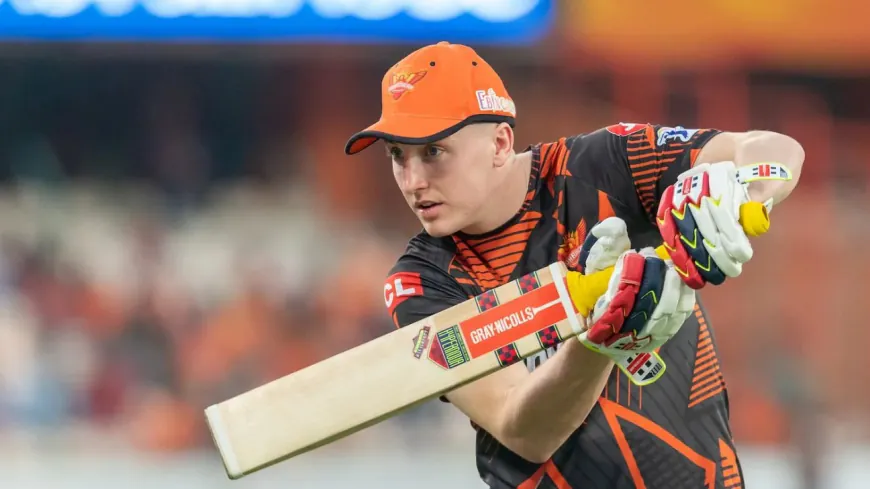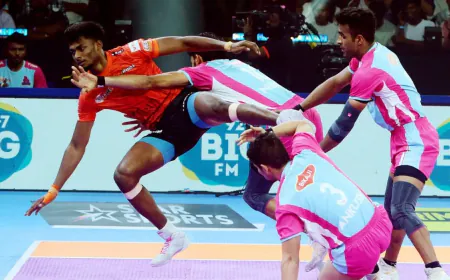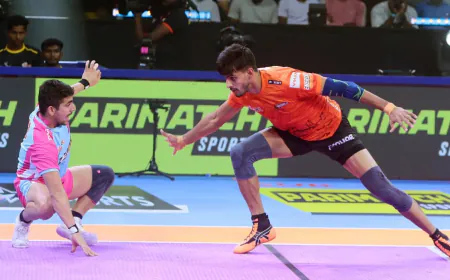Harry Brook's IPL Withdrawal-Warranted Rest or Rule-Break?
Harry Brook's pullout from IPL 2025 has created controversy—was it a necessary break for personal reasons or a breach of contractual agreements? The move has left fans and franchises wondering about the implications.

England's budding cricketer Harry Brook's recent withdrawal from the 2025 IPL season has caused quite a commotion in the cricket community. With Brook's second straight year of withdrawing from the tournament for non-injury-related reasons, he now risks being banned for two years as per IPL's new rules. Even though some might consider this penalty harsh, England all-rounder Moeen Ali in the past felt that it was reasonable and justified, considering the extent to which such choices affect franchises and tournament planning.
The IPL's New Rule and Its Implications
In a bid to preserve the league's integrity and prevent last-minute interruptions, the IPL governing council brought in a new rule before the 2025 season. The rule stipulates that any player who withdraws from the tournament after signing up at the auction, except for an injury or medical condition certified by their home board, will be banned from playing in the IPL or entering the auction for two years.
Brook, who was purchased by Delhi Capitals for INR 6.25 crore (around £590,000) during the mega auction in November, pulled out of the tournament last month. His withdrawal was communicated to Delhi Capitals by the England and Wales Cricket Board (ECB). Brook subsequently wrote on social media that he required "time to recharge after the busiest period in my career to date."
With his exit, Delhi Capitals now face the challenge of restructuring their squad before the start of the season, a situation Moeen Ali believes justifies the two-year ban.
Moeen Ali’s Perspective on the Ban
Moeen Ali, who will represent Kolkata Knight Riders at IPL 2025, shared his thoughts on the matter during the 'Beard Before Cricket' podcast. According to him, the regulation is required to avoid constant pull-outs, which have caused some upset in team dynamics in the past.
"I don't think it's harsh at all," Moeen stated. "A lot of players have done this before.". They pull out and return in subsequent years, at times getting improved financial offers. This is challenging for teams since they need to realign their strategy and team balance at the eleventh hour. In Brook's situation, Delhi Capitals had mapped their team around him, and now they need to reconsider their entire configuration. If you pull out due to injury or family crisis, then the rule holds. It is understandable.
Brook's Withdrawal: Strategic Rest or Leadership Preparation?
Brook's withdrawal from the IPL has triggered debate surrounding his long-term career strategy. With his all-format England contract and potential to become England's white-ball captain in the future, replacing Jos Buttler, some feel his decision was more strategic than circumstantial.
England has a congested fixture list ahead of it, featuring a five-Test home series against India from June to August and the Ashes in Australia from November to January. Moeen opined that Brook could be giving more importance to international duties and looking to take on a leadership role in the near future.
"Brook has done a lot of cricket in the last bit of time, and he might just want to consider resting up before England's big block," Moeen said. "He plays across the three formats and is most likely going to be the next white-ball captain. The past few months have been hectic, and perhaps he just wants to rest and get himself ready for what lies ahead."
It's not the first time Brook has withdrawn from the IPL. Brook last year also pulled out of the IPL only ten days ahead of the league, citing family reasons after the demise of his grandmother. He had already skipped England's February Test series in India due to bereavement. That one could be comprehensible, this time's one in the face of no injury or family emergency falls under the IPL's new rule.
Adil Rashid, another English cricketer who has played in the IPL, was in favor of the league's decision, pointing out that players know what they are getting themselves into when they register for the auction.
"That's the rule," Rashid said. "If you register for the auction, you know what happens if you withdraw. If it's an injury, things could be different, but otherwise, players have to be held responsible. This rule is there to prevent last-minute withdrawals that upset teams."
IPL's two-year ban policy brings forth the larger issue of how to balance player workload management with franchise interests. While there might be a need for players like Brook to rest and manage their international careers, franchises invest a lot of time and effort in signing players and constructing team strategies around them. When the marquee players pull out at short notice, it causes uncertainty and impacts competition equity.
Brook's case brings to the fore a conundrum for contemporary cricketers: how to balance international responsibilities, franchise obligations, and individual health. While the new IPL rule is intended to safeguard teams and the integrity of the league, it also compels players to make tough decisions regarding where to allocate their time and energy.
While the IPL has not formally approved Brook as yet, applying this new rule would render him ineligible to play in the league until 2027. This might affect his future earning capacity and restrict his exposure to high-stakes T20 cricket, which has been a godsend for most international cricketers.
Concurrently, Brook's non-appearance in the IPL could enable him to concentrate on his international career, especially if he is being considered for a leadership position in England's white-ball establishment. Whether or not his move was the correct one is yet to be determined, but at this point, the IPL has stood firm on withdrawals by players.
Conclusion
The furore over Harry Brook's IPL withdrawal and the ensuing possible ban is a testament to the constantly changing nature of contemporary cricket. As leagues introduce tougher policies to ensure competitive balance, players have to make their commitments carefully. Although Moeen Ali and Adil Rashid are in favour of the IPL's decision, Brook's decision to give international cricket and rest precedence may still be a shrewd long-term strategy.
In the end, the controversy highlights the constant battle between franchise demands and player workload management. Whether or not the IPL's stance will discourage future withdrawals is to be seen, but for the time being, Harry Brook is at the forefront of a bitter cricketing debate.





















































